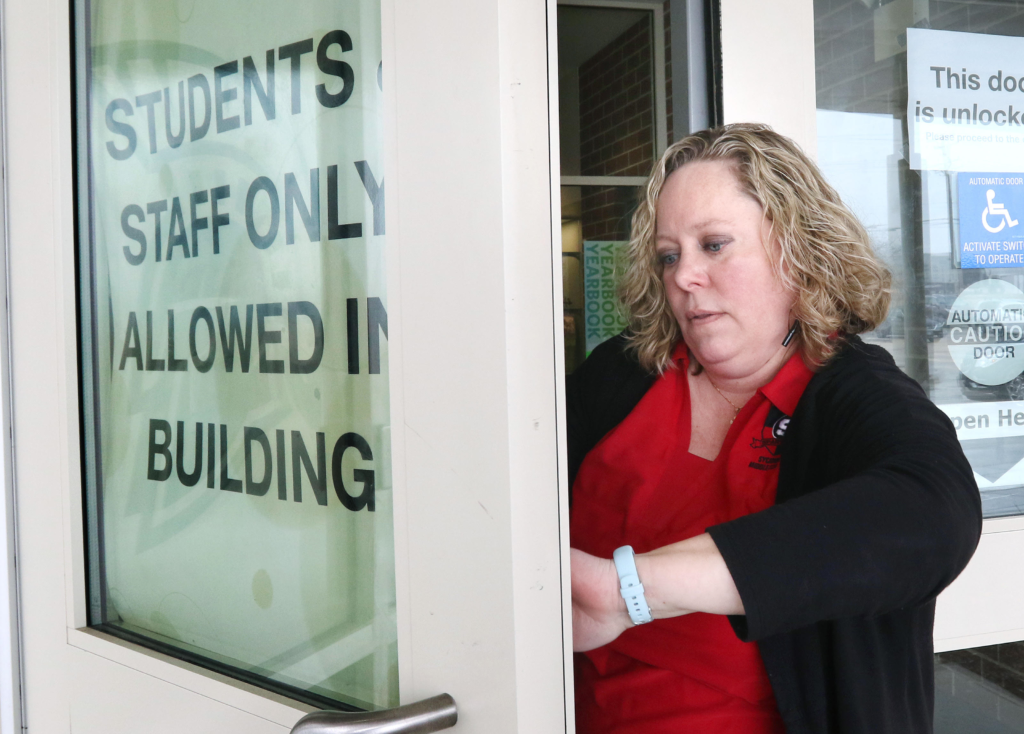At first, I wasn’t that concerned. The coronavirus seemed like other global health scares before it. As a photojournalist in northern Illinois, I had watched these stories unfold from a distance.
Even my first assignment on Jan. 31 didn’t hint at what was to come. I documented how a local hospital was preparing to handle patients with an infectious disease such as Covid-19. At that point there were only six cases in the United States and coronavirus was far from my mind as I went through my week performing the tasks of a photo editor for Shaw Media, the 8th largest newspaper publisher in the country.

A week and a half ago, our company’s human resources asked everyone to work remotely and not to come into the office to avoid potentially spreading the virus. This meant most of the staff could work from home. Photojournalists can’t work from home. We have to be out in the field to do our jobs, and I’ve been doing just that for the DeKalb Daily Chronicle ever since.
My pickup truck has become my office and my laptop is my connection to the company, whether it be online meetings with other editors or uploading photos to servers and websites.
Working remotely is nothing new to me but this story is unlike any other I’ve covered since the Sept. 11 terrorist attacks.
I worked 12 days in a row and nearly everything I shot was related to the coronavirus crisis. Many photojournalists like me are spending long hours in places that have been ordered to close to avoid the spread of the virus.
On March 7, I spent the entire day photographing the Illinois High School Association’s girls state basketball championships in a crowded Redbird Arena at Illinois State University. On March 10, I covered a boys basketball super-sectional at a packed Convocation Center at Northern Illinois University. Two days later the IHSA announced it was canceling all remaining winter sports tournament games to avoid having someone potentially contract the virus in the large crowds that gather for such events. Then the universities that hosted the games also closed due to fears about the virus.
On March 13, Illinois Gov. J.B. Pritzker announced that all Illinois schools in the state would close. In order to illustrate this story, I spent that Friday afternoon and the following Monday in schools. Then the restaurants across Illinois were ordered to close except for take-out and delivery, so I spent time taking pictures inside bars and restaurants. On Election Day in our state, an already busy day for journalists, I visited polling places in our coverage area. I rounded out the week at crowded stores and a packed government meeting.
I took all of the precautions recommended by the CDC: I avoided shaking hands.I kept my gear clean using disinfectant wipes, and I am traveling around with a giant hand sanitizer bottle. But I can’t shake the nagging worry that I may get sick.
The past several days have been the most intense in my 28-year career. The news was evolving hourly, and I had to adjust accordingly. It was exhausting mentally and physically.
The camaraderie with co-workers and the support form the company I work for has helped greatly in keeping me positive. So has spending time with my two young adult kids.
Shaw has made it clear that the company doesn’t expect us to put ourselves in a situation where we feel our health may be at risk. Regular emails have been sent and meetings are held to check on everyone’s well-being. Simple gestures like that go a long way in keeping morale high during this tough time
When I chose photojournalism as a career I knew to expect long days and the occasional seven day work-week but never did I think potentially risking my health would be part of the job, especially here in the Midwest. But I will continue to do so as long as this crisis persists. Keeping people informed is what we do and at times like these our jobs are more important than ever.
Mark Busch is the photo editor at the DeKalb Daily Chronicle in northern Illinois.
